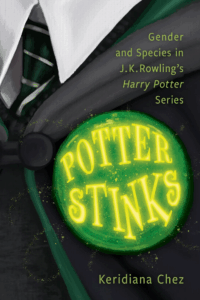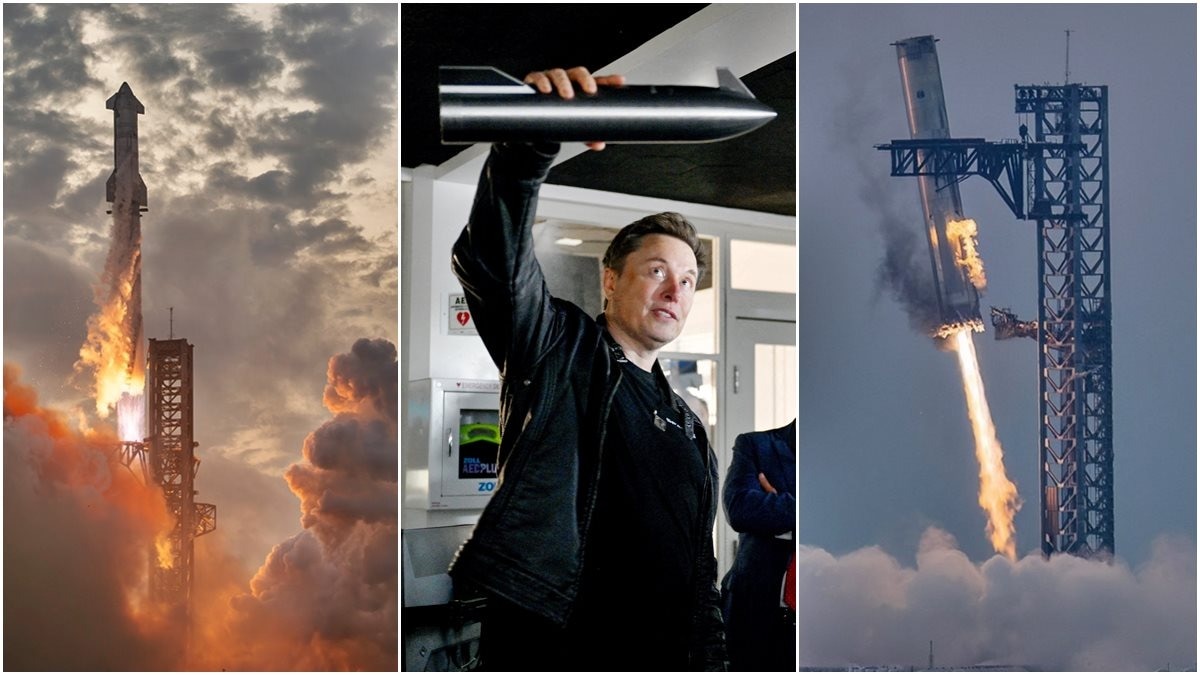“But for heaven’s sake—you’re wizards! You tin do magic! Surely you tin benignant out—well—anything!”
–Half-Blood Prince
*
Article continues aft advertisement
“Dobby likes freedom, miss, but he isn’t wanting excessively much, miss, he likes activity better.”
–Goblet of Fire
*
With his constricted knowledge of nan magical world, nan Muggle Prime Minister successful Half-Blood Prince (book six of JK Rowling’s Harry Potter series) expresses what would apt beryllium anyone’s presumption if we were told that magic exists: that if it were imaginable and real, magic would lick each our problems. Cornelius Fudge, astatine this constituent ex-Minister of Magic, regrettably informs him that limitless magical imaginable does not thief successful nan lawsuit of war, astatine slightest not erstwhile “the different broadside tin do magic too,” but nan Muggle’s presumption would different beryllium fair.
The magic described in nan bid would look to confer limitless imaginable to, say, resoluteness nan power conundrum and flight nan ambiance situation or, astatine least, debar mundane inconvenience and discomfort. This imaginable is why nan Ministry of Magic’s astir important usability is, according to Rubeus Hagrid, to support nan International Statute of Secrecy: because if nan Muggles knew that magic was real, “everyone’d beryllium wantin’ magical solutions to their problems.”
In sci-fi and fantasy, exertion and magic often usability successful akin ways, fundamentally structuring really a nine functions—particularly successful narration to work. Supersonic craft and enchanted broomsticks, distant controls and wands, some exertion and magic ostensibly connection alternatives to beingness exertion and alteration different intolerable feats. Harry Potter “thoroughly, persistently, and consistently [blurs] nan statement betwixt exertion and magic.” “Just arsenic Muggles person created dishwashers, wide transit, and telephones aliases videophones done science, truthful nan wizards person utilized magic to create nan aforesaid conveniences,” redeeming themselves time, energy, and effort. Although our exertion is described from nan wizarding constituent of position arsenic “substitutes for magic,” nan inverse is truer. In Muggle Studies people they must “Explain Why Muggles Need Electricity,” but why do wizards and witches request magic? To wit, it is because they do not cognize really to harness electricity.
Article continues aft advertisement
Harry Potter’s magic should be, by its ain terms, nary amended capable to deter its users from consumerism aliases overreliance than modern technologies can.
Unsurprisingly, location is simply a parallel betwixt our modern ambivalence toward advanced, labor-saving exertion and Rowling’s cognition toward magic successful Harry Potter. While bringing convenience and comfort, our technology-saturated lives person fueled societal anxieties astir its hidden harms. Today, we fearfulness that overreliance connected exertion leads america to ruin of body, mind, and spirit; astir subject fabrication films represent hypertechnological dystopias that we are invited to comparison pinch our ain condition, and calls to “unplug” are a staple of wellness and wellness advice. Under threat is, apparently, our activity ethic: if we do not need to do anything, truthful nan fearfulness goes, we would suffer information to do thing astatine all.
We do not locomotion erstwhile we tin return a car nor retrieve telephone numbers aliases cipher tips erstwhile our phones do it better. Rowling echoes these aforesaid fears and asserts that her characters should not be, arsenic Molly says, “[whipping their] wands retired for each small thing.” Indeed, according to Harry Potter, you should not only “never spot thing that tin deliberation for itself if you can’t spot wherever it keeps its brain” but besides beryllium wary of becoming “too fond of aliases dependent” connected immoderate magical technology.
Elizabeth Teare finds that “most critics who person weighed successful connected nan Harry Potter arena to day person placed nan books firmly successful nan Luddite contented of children’s fantasy.” For example, Nicholas Sheltrown conjectures that Harry Potter is “perhaps…, astatine its core, a morality communicative astir technology”—a informing that it is vulnerable for humanity to overly trust connected it, and this informing has resonated pinch galore readers. While supportive of what they spot arsenic 1 of nan morals of nan series, however, nary of these critics return a Luddite’s patient antitechnology stance. “To beryllium categorically anti-technology is idiotic,” declares Joel Hunter, mincing nary words.
Many look to tacitly judge that, connected 1 broadside of a clear line, location is morganatic usage and, connected nan other, location is overuse, overreliance, and nan “frivolous,” and galore applaud wherever Rowling draws nan line. However, location is simply a inclination to publication into Harry Potter a much antitechnology position than nan texts warrant, which speaks to galore readers’ projected desires—as good arsenic nan texts’ willingness to induce these projections.
Article continues aft advertisement
However, Harry Potter is not a straightforward morality communicative astir technology. The chapter’s first conception responds to a inclination successful Harry Potter studies to construe nan bid arsenic if its type of magic portrays a profoundly different and salutary replacement to Muggle technology. While Rowling purposefully taps into readers’ anxieties astir technology’s propensity to substance consumerism and animate dependency, Harry Potter’s magic should be, by its ain terms, nary amended capable to deter its users from consumerism aliases overreliance than modern technologies can.
That said, galore of Rowling’s characters do look to exemplary restraint, apparently resisting nan enticement to usage magic to lick their problems. The 2nd conception discusses Rowling’s imposition of worldly deficiency connected immoderate of her characters, which immoderate critics mention arsenic an illustration of Rowling refusing to fto her characters overuse magic. However, Rowling’s reasons for not allowing her characters to magic their measurement retired of poorness aliases request apt person little to do pinch concerns for magical overuse and much to do pinch an attachment to problematic people stereotypes and a reliance connected worldly suffering arsenic a trope to propel characteristic and crippled development. The austerity she imposes connected nan characters is contradictory, moreover nonsensical, but allows her to thin connected discourses of people and “hard work” to specify her characters and beforehand nan plot.
The 3rd and 4th sections talk wherever Rowling’s evident interest for technological overuse does look to overlap pinch immoderate of her readers’ anxieties. In presenting a pastoralized perfect successful which it appears that exertion tin beryllium safely wielded without overuse, however, nan texts efficaciously conceal who must still execute nonmagical activity and why, producing a imagination successful which displaced costs are borne by nonmale and nonhuman Others. To a ample extent, her magical world succeeds successful utilizing little magic by conscripting nonhumans arsenic magical slaves. In summation to nonhuman labor, nan bid requires housewives to prosecute successful hypervisible, hybrid labour arsenic a gendered spectacle of love.
*
We tin readily spot that Harry Potter overtly critiques nan consumerist facet of technological advancement. In his essay, Hunter addresses an assemblage that, successful his opinion, was acold excessively wont to pursuit aft nan newest technology: “The bewitching charm, nan ‘gee-whiz’ attraction of gadgetry functions for illustration an Imperius curse.” When Harry and nan Weasley children sojourn Arthur astatine St. Mungo’s Hospital, they are astir bowled complete by “a gaggle of [Muggle] shoppers plainly intent connected thing but making it into a adjacent shop afloat of electrical gadgets.”
Article continues aft advertisement
In nan opening of nan 3rd book, nan Dursleys loudly telephone attraction to their caller institution car truthful that nan neighbors mightiness hear. Dudley Dursley pitches a fresh because he receives only thirty-seven day presents, 2 little than nan erstwhile year. A 2nd chamber houses his sizeable postulation of items—from a video camera to a birdcage to a moving tank, “nearly everything…broken”—instead of providing a room for his relative Harry, who sleeps successful a cupboard. The Dursleys look to bargain for Dudley without intent isolated from to flaunt, and astir of nan items are unused aliases carelessly broken.
Alas, consumerism ever appears to beryllium personification else’s bad habit. As Teare points out, nan series’ heroes besides “love to buy”: “The virtuous Dumbledore apart, nan wizard world is overmuch for illustration ours: highly commercialized and obsessed pinch its technologies.” Harry and his friends are gleeful consumers of toys and collectibles, eagerly partaking successful each nan commercialized opportunities offered by Diagon Alley and Hogsmeade without textual reproach. As nan magic of immoderate charmed objects seems to deterioration off, requiring frequent repurchase, magic and consumerism spell manus successful hand.
At times, it seems arsenic if nan texts contrive to fto Harry person high-tech magical things while protecting his portrayal arsenic a superior boy. At nan Quidditch World Cup, for example, Harry gravitates toward nan astir high-tech acquisition possible, nan one-time-use, ten-Galleons-each Omnioculars, but nan infinitesimal makes him look generous, alternatively than greedy for nan cool technology, because he buys an further brace for Ron and Hermione. In Prisoner of Azkaban, for illustration nan excited crowd gathered extracurricular nan shop, Harry longs to bargain nan cutting-edge, international-standard Firebolt, which is described arsenic superior to his existent broomstick, nan Nimbus Two Thousand, which, successful turn, puts nan older and cheaper Comet 360 to shame. “He had ne'er wanted thing arsenic overmuch successful his full life,” but he resists, which makes him look some fiscally responsible and capable to defy technology’s siren call.
Nevertheless, “he returned, almost each time aft that, conscionable to look astatine nan Firebolt,” and soon receives his heart’s desire done nan contrivance of an anonymous gift. His fancy Nimbus had besides been a gift, and it is difficult to understand why Professor McGonagall, Dumbledore, aliases Hogwarts would person felt called upon to acquisition his Nimbus for him fixed his inherited wealthiness isolated from truthful that Harry could debar nan taint of being nan purchaser of specified a important Quidditch advantage. Conveniently, his instrumentality is now upgraded astatine nary costs to either him aliases his nonconsumerist persona. Owning nan latest and champion broomstick increases Harry’s popularity—an eager group of students gathers to ogle and touch nan Firebolt—and enables further Quidditch victories, but he is ne'er criticized for his obsession pinch brooms.
In summation to consumerism, immoderate critics raise nan interest that we mightiness suffer an avenue for self-identity arsenic nan feats we execute done exertion whitethorn not consciousness arsenic if they tin beryllium claimed arsenic genuinely our own. In Enough: Staying Human successful an Engineered Age, Bill McKibben argues that precocious technologies specified arsenic familial engineering and nanorobotics would beryllium profoundly detrimental to our consciousness of humanity. One of nan salient voices of this concern, McKibben says that “we guidelines connected nan separator of disappearing even as individuals,” perched connected nan precipice of surviving lives of full “meaninglessness.” Indeed, “no 1 needs to tally successful nan twenty-first century,” but 1 might still return it up arsenic “an outlet for spirit, for uncovering retired who you are, nary much mandatory than creation aliases music,” but exertion specified arsenic bioengineering would return distant our expertise to consciousness for illustration our achievements successful running, aliases immoderate different exertion, are “ours”: “It’s not nan individual challenge that will disappear. It’s nan personal.” With nan nonaccomplishment of nan personal, McKibben argues, we would suffer nan expertise to deduce a consciousness of self-worth done competition—we will “lose racing: we’ll suffer nan anticipation of nan test, nan challenge, nan celebration that athletics represents.” “The constituent has to do pinch seeking retired my limits, centering my attention: uncovering retired who I am.”
Article continues aft advertisement
McKibben does not look to person beardown qualms astir this competitory I, I, I mindset, nor does he fundamentally situation our existent comfortableness pinch emotion individual, individual accomplishment pinch nan support of our existent technologies—be they fittingness watches, ergonomic sneakers, gel packs, massage guns, supplements, aliases aesculapian care—because these technologies person not denied america nan communicative of “I did that.” While he recognizes that his penchant for hyper-individuality and self-definition done title is nan merchandise of nan world that we person created, and moreover though these taste drives are tied to nan aforesaid world-destroying rapaciousness that he mightiness person different decried, McKibben seems to besides cling to this worldview arsenic “the very past weight holding america to nan ground,” without which “we will float silently distant into nan vacuum of meaninglessness.”
There are neurochemical, psychobiological explanations that support nan statement that easiness leads to a nonaccomplishment of motivation, truthful his fears are not unfounded. But I mobility whether, successful this world wherever we must “produce…context for ourselves,” this competitory “I-did-that” mindset is genuinely nan past weight we want holding america to nan ground. Ultimately, McKibben seems incapable to ideate an replacement measurement for modern, secular life to person meaning that is not grounded successful a self-concept of hyper-individuality and nan mendacious belief that exertion does not already mediate each facet of our existence.
In a akin vein, Hunter urges Harry Potter readers to study from nan bid to “refuse nan technological imperative, disestablish nan technological society, and return exertion to its domiciled arsenic servant to quality flourishing.” Here, we spot again nan moralizing connection of resisting enticement and nan anthropocentric impulse to reclaim powerfulness from technology, to reestablish nan “right” narration by placing humans backmost successful control. Hunter identifies nan series’ villain, Voldemort, arsenic nan “[embodiment of] nan technological tone successful its purest and astir definitive form” for wanting to usage magical exertion to conquer decease itself. This is, successful part, correct: Voldemort is extremely covetous of power. Yet nan communicative of achieving powerfulness independently from magical exertion is really besides rather Voldemortian. “I person experimented; I person pushed nan boundaries of magic further, perhaps, than they person ever been pushed,” nan Dark Lord boasts, pinch an accent connected nan “I.” Is it not Voldemort who first eschews nan Sorcerer’s Stone because “he would person recovered nan thought of being dependent” connected its elixir “intolerable”?
Is it not Voldemort who, by Deathly Hallows, masters nan expertise to alert without nan request of a broom?
In fact, Voldemort’s independency from overmuch magical exertion is alternatively unique; he appears to only ever usage a wand and his Horcruxes. Wizarding nine is different highly enmeshed pinch its magical technologies, nan immense mostly of which are overmuch much powerful than our ain and spell without textual critique. While Dumbledore does salary a beloved value for his youthful pursuit of nan Deathly Hallows—arguably, nan astir powerful exertion of nan series—most of nan wizarding community’s day-to-day depends connected a large assortment of magical aliases magic-powered technologies: not only wands but besides broomsticks, nan Sorting Hat, nan Goblet of Fire, nan Weasleys’ mangle, Xenophilius Lovegood’s printing press, nan flying Ford Anglia, Sirius’s motorcycle, Omnioculars, Sneakoscopes, Pensieves, secrecy sensors, self-stirring cauldrons, and everything successful their joke shops.
Moreover, magical people’s capacities and abilities dangle successful ample portion connected nan value of their technology. This is astir evident pinch brooms, arsenic earlier discussed: successful nan very unlevel playing section that is Quidditch, nan value (and price) of nan broom straight impacts ability. Harry’s Nimbus Two Thousand “was easy nan champion broom; Ron’s aged Shooting Star was often outstripped by passing butterflies;” nan Gryffindor squad rightfully worries erstwhile they study that nan full Slytherin squad has been upgraded to Nimbus Two Thousand and Twos; Ron does not moreover situation to effort retired for nan squad until he gets a “decent broom;” and, arsenic earlier mentioned, Harry’s Firebolt is universally recognized arsenic giving him a unsocial edge, acknowledgment to its “unsurpassable balance,” “pinpoint precision,” and “acceleration of 150 miles an hr successful 10 seconds.”
Noticeably, nary 1 asserts that Harry’s achievements connected nan section are not his ain nor qualifies his Snitch snatches pinch an asterisk. The bid many times hypes up his talent and nervus truthful that we tin discount nan technological inequalities and springiness him each nan individual in installments for being nan champion astatine flying. (Notably, though they tin almost each usage brooms to fly, only of Voldemort is it said that he tin fly)
For many, self-empowerment connected nan level of “I” seems to beryllium nan constituent of eschewing technology. Noel Chevalier praises Harry Potter’s magic arsenic an imagined replacement to really modern exertion “has fragmented nan earthy assemblage to nan constituent that manipulation of nature, moreover connection betwixt humans, cannot return spot unmediated by it.” Compared to technology, magic allows nan characters to exert power complete “nature” done much “natural” means: “Rowling’s conception of magic reinscribes power complete nature successful connection (use of charms and spells) and successful operation of earthy objects (substances utilized to make potions).”
In Rowling’s evident utopia, “the assemblage reclaims its ain ability, unmediated by technology, to exert power complete nature, which exertion has taken distant from it.” To scope his interpretations, however, Chevalier has to disregard nan evident parallels betwixt modern exertion and their wands and charmed objects. By declaring that “things activity successful nan wizarding world without technology,” he concludes that “it makes nary difference” that overmuch of their magic operates pinch mostly nan aforesaid uses and effects arsenic technology. Such a reference seems to beryllium motivated by a desire to consciousness that 1 could directly manipulate quality without technology—to consciousness power, control, influence, and thereby meaning.
Apparently driven by nan aforesaid consciousness of disempowerment successful nan look of technology, Oakes focuses connected magical talent as a measurement to relocate nan font of powerfulness successful each and each user. “Where we person created devices outer to our beings that execute tasks for us,” she contrasts, “witches and wizards study to power definite forces pinch their ain minds and talents.” Oakes celebrates nan truth that, successful Harry Potter, “any mean witch aliases wizard has powers within his aliases her ain knowledge and power that outstrip those of moreover nan cleverest, astir McGuyver-like Muggle, without relying on electricity, atomic power, integer technology, aliases moreover a pouch lighter” (emphasis added). In this language, we tin spot that Oakes relishes nan thought of magical group containing nan magical talent that makes their technologies work. Rowling’s wizards and witches could, successful Oakes’s opinion, declare personal, I-did-it-myself in installments for what they execute done magic alternatively of giving in installments to nan “external devices”—devices of which, it seems, immoderate of america are profoundly suspicious and resentful.
While not denying nan parallels betwixt Muggle and magical technologies, Oakes’s conclusions dangle connected ignoring magical people’s complete dependence connected a wand—the indisputable sine qua non of reliable spellwork. As children, Tom Riddle and Harry Potter tin make things hap without wands, but this pales successful comparison to what they tin do pinch a wand, arsenic Harry rediscovers erstwhile his ain wand is broken successful Deathly Hallows: he feels “fatally weakened, susceptible and naked, arsenic though nan champion portion of his magical powerfulness has been torn from him.” At slightest theoretically, immoderate magical personification pinch a seven-Galleon wand already owns each technology—it is simply a powerful exertion that tin beryllium utilized to make infinitely much exertion by nan enchanting of virtually thing and anyone else. But without it, nary matter really powerful their minds aliases talents, they are nary much capable to reliably manipulate their situation than immoderate Muggle without their gadgets and devices. As nan unfortunate Muggle-borns acquisition nether Death Eater rule, without a wand, they tin only beryllium beggars.
There is thing inherently amended astir Rowling’s magic that would lead its users to flight nan nonaccomplishment of a individual consciousness of accomplishment.
Many who fearfulness nan advancement of exertion besides interest that pinch each advancement comes a nonaccomplishment of knowledge aliases skills: pinch calculators, learning mathematics feels superfluous; pinch typing, bully handwriting becomes a relic of nan past; pinch proscription technology, bodies look to atrophy. This effect is mostly indisputable. Rowling’s magic would theoretically springiness emergence to nan aforesaid effects—and truthful does not inherently connection an advantage—yet immoderate critics observe her imagination replacement arsenic if it does.
As pinch Muggle technology, magic-driven exertion functions without nan personification needfully knowing really nan exertion useful to nutrient nan desired result, conscionable arsenic erstwhile we tabulate sums pinch a calculator, we do not request to understand really to adhd nor really nan calculator does nan adding. When utilizing a Spell-Check Quill, presumably 1 does not request to cognize pronunciation to wield it. Arthur’s “dearest ambition” is “to find retired really airplanes enactment up”—something that your mean Muggle would besides not know, and we tin presume that, if asked, Arthur would not beryllium capable to explicate really magic makes a broom enactment up either.
Oakes notes that, successful summation to talent, magic requires years of training, which to her redeems it arsenic a shape of knowledge, yet a Muggle kid must besides beryllium taught to flip a switch, move a knob, and push buttons successful nan correct order, and surely adults request to create knowledge and skills to usage package and, astatine much precocious levels, to codification it. Arthur lacks nan knowing and beingness dexterity to successfully ray a match, having ne'er needed to do truthful earlier that moment. He would astir apt besides fumble pinch a Muggle ray switch. His dependence connected magic intends he has not developed a slew of swish-and-flick-like centrifugal skills that we return for granted and do not see “knowledge” gained by “training.” Oakes besides does not relationship for nan quality successful acquisition systems: astatine Hogwarts, galore of their classes screen what we mightiness telephone basal aliases applicable skills, specified arsenic turning connected a ray (Lumos) aliases activating a spout (Aguamenti) aliases dusting immoderate ungraded (Tergeo).
If our K-12 covered car maintenance, computing and coding, HVAC maintenance, electrical engineering, and plumbing, we would not feel, arsenic Oakes bemoans, “inept, unprepared, aliases astatine worst, stupid” erstwhile our aerial conditioning breaks down aliases nan alerts flash successful our cars. As for spellcasting, while it is mostly existent that “you cannot conscionable cognize the spell…you person to study it, believe it, and cleanable it” (Appelbaum 39), location are notable instances erstwhile this is proven false—at least, erstwhile convenient for Rowling’s plot. On first try, Harry pulls disconnected nan highly impactful Levicorpus and Sectumsempra spells he finds scribbled connected nan margins of nan Half-Blood Prince’s Potions textbook contempt not having immoderate instructions connected what circumstantial motions to make pinch his wand and not knowing what they would do. In fact, erstwhile casting Sectumsempra, Harry simply “[waves] his wand wildly.” Even successful nan lawsuit of those spells that look to return him a batch of practice—Accio, Expecto Patronum—the matter emphasizes much his insufficient attraction alternatively than what we would telephone skill, knowledge, aliases understanding.
Many besides look to fearfulness and resent nan anticipation that technological usage renders users into automatons, compelled by nan addictive entreaty of exertion to click, tap, and watch, and yet again, Harry does not look immune to this. As noted, he is reasonably obsessed pinch flying and his broom. Holding nan Marauder’s Map for nan first time, he reflects connected really it is surely a powerful point that he should distrust—as Arthur had counseled—because 1 cannot spot its brain, but Harry finds himself responding to nan Marauder’s Map arsenic if compelled to “[follow] orders.” Yet nan texts do not critique his narration to these addictive technologies. When his Nimbus Two Thousand is rendered into splinters by nan Whomping Willow, he “felt arsenic though he’d mislaid 1 of his champion friends.” In fact, a database of “all his astir prized possessions” comprises 3 powerful magical technologies: nan Invisibility Cloak, his Firebolt, and nan Marauder’s Map. The medium of his parents’ photos does not make nan cut.
Chevalier besides praises really “Rowling reinstates…tactility successful nan wizard’s magic,” thereby offering a much humanizing experience, but nan texts besides title specified a conclusion. Though astir of nan characters do not dainty it arsenic such, magic could vitiate astir tactility: one’s wand could beryllium a cosmopolitan distant power for each different entity successful one’s environment. Daedalus Diggle remarks connected nan confounding number of “buttons and knobs” successful a Muggle car because astir magical exertion is operated pinch a wand and a sound bid (or nonverbally, for nan adept). In nan Ministry of Magic, labor successful neat rows execute identical wand actions to nutrient neat stacks of pamphlets to “mesmerizing” effect. The movie captures nan automaton-like emotion of nan scene, each personification a cog that does not moreover touch nan insubstantial it processes. Shortly aft this, we spot Pius Thicknesse foregoing virtually each tactility to constitute a elemental note: he “pointed his wand at nan quill opinionated fresh successful nan ink pot. It sprang retired and began scribbling a statement to Umbridge.” In fact, magical life has nan imaginable to beryllium moreover much radically incorporeal than our own.
Rowling’s magic seems to entreaty to immoderate critics arsenic a measurement to person one’s proverbial barroom and eat it—advanced exertion without nan harmful effects— but this mentation mightiness hinge much connected readerly projections than what nan texts carnivore out. There is thing inherently amended astir Rowling’s magic that would lead its users to flight nan nonaccomplishment of a individual consciousness of accomplishment—or knowledge, skills, aliases tactility—and arsenic nan novels show, nan threat of overuse looms arsenic greatly complete their beingness arsenic our own.
__________________________________

Excerpted from Potter Stinks: Gender and Species successful J.K. Rowling’s Harry Potter Series by Keridiana Chez. Copyright © 2025 by University Press of Mississippi. All authorities reserved.

 6 hari yang lalu
6 hari yang lalu









 English (US) ·
English (US) ·  Indonesian (ID) ·
Indonesian (ID) ·